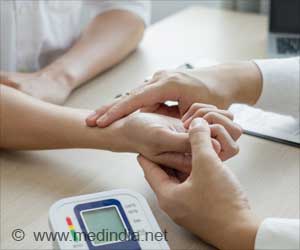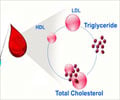The pulse rate calculator assists in determining the recommended resting average pulse rate for all age groups, including unborn fetus. Resting pulse rate is a vital sign indicating your overall health and helps predict potential future health issues(
1✔ ✔Trusted Source
Importance of resting heart rate
Go to source).
Resting rate has the same value for monitoring of other cardiovascular risk markers such as blood pressure, lipids, smoking status and weight.� This pulse rate calculator aims to raise awareness and encourages self-monitoring to maintain your health. The associations between pulse rate and health are weaker in females for some unknown reason(
2✔ ✔Trusted Source
Resting pulse rate as an indicator of health and disease
Go to source).
How to count the Pulse Rate or Heart Beat per minute (BPM)?
Pulse rate and heartbeat are the same measurements and essentially interchangeable terms however pulse is generally a simpler and more straightforward way to measure the heart rate.
Pulse rate is counted by putting slight pressure on any artery where pulsations can be felt. The most convenient location is the wrist (radial pulse). Other locations include the side of the neck (carotid pulse), groin (femoral pulse), or side of the foot (posterior tibial artery pulse)(
3✔ ✔Trusted Source
Clinical Methods: The History, Physical, and Laboratory Examinations
Go to source).
Method to count the pulse rate -- Turn the hand facing the palm side up.
- Place your index finger along with the second and third finger just below the thumb.
- Exert slight pressure with the index and second finger against the bone.
- Count the pulse for 15 seconds using a watch or clock and multiply the number by 4(4✔ ✔Trusted Source
Effect of measurement duration on accuracy of pulse-counting
Go to source) or count for a full minute.

Important Facts About Pulse Rate or Heartbeat
- Normal values for pulse rate depend on age and�the fitness�level.
- A normal adult has a pulse rate of 72/minute however an athlete�s resting pulse rate maybe below 50 per minute(5✔ ✔Trusted Source
Vital Sign Assessment
Go to source). - An adult with an average resting pulse rate above 70 beats per minute can have a slightly higher incidence of heart attacks.
- One can lower the pulse rate by lifestyle changes - by controlling what is eaten and by doing regular exercises.
- Heart beat increases after meals, during sex, during exercise and can vary during the day(6✔ ✔Trusted Source
The heart rate increase at the onset of high-work intensity exercise is accelerated by central blood volume loading
Go to source).
Advertisement
Recommended Readings on Pulse Rate
Normal heart rate and rhythm can be measured by checking pulse on the wrist and evaluated with an electrocardiogram. Myths about heart rate can lead to anxiety.
A simple animation that tells you how to take your pulse and count your pulse rate.
Online Heartbeat Calculator (heart odometer) counts the number of times your heart has beaten so far. Read more information on irregular and fetal heartbeat.
Embarking on a fitness regime? Find out what your safe heart rate zone while exercising.
Ectopic heartbeats are small changes in regular, normal heartbeats. These changes cause either a skipped or extra heartbeat.
Respiratory Rate and Breath-Count Calculator calculates the respiratory rate and number of breaths. More on how breathing exercises and meditation practices are necessary for good health.
Heart rate (pulse rate) during physical exertion calculator calculates maximum heart rate and safe pulse rate zone for exercise. Know how low and high pulse rate affect your health.

















My blood pressure is find, I am not a diabetic, my heart is find. Low thyroids and high in cholesterol But checking my pulse rate staying at 46. When exercise outside it is 74. Take water exercise 3 days a week, low pulse rate 48. Have dizzy, tired feelings.